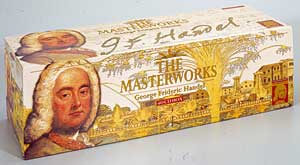|
Vol. 1-3:
Jephtha (HWV
70)
Jephtha
John Mark Ainsley
Iphis
Christiane Oelze
Storge
Catherine Denley
Zebul
Michael George
Hamor
Axel Köhler
Angel
Julia Gooding
RIAS Kammerchor
Akademie für Alte Musik (on period instruments)
Marcus Creed
3 CD’s Brilliant Classics licensed from Edel Classics GmbH
Released in 2001 / Recorded in 1992
|
Composed two years after Theodora
and eight before his death and while he was partly blind, Jephtha
is Handel’s last oratorio. With a good choir and an excellent orchestra,
Marcus Creed offers a solid interpretation of this oratorio, one that is
able to do justice to the greatness and profoundness of the work. John
Mark Ainsley is a very convincing Jephtha. Most of the other soloists, if
not extraordinary, at least offer a good personification of each
character.
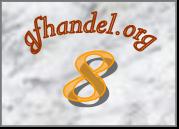 |
|
Vol. 4-5:
Judas Maccabaeus
(HWV 63)
Judas Maccabaeus Alexander Young
Simon John Shirley-Quirk
Israelite woman
Heather Harper
Israelite man
Helen Watts
Wandsworth School Boys Choir
Amor Artis Chorale
English Chamber Orchestra (on modern instruments)
Johannes Somary
2 CDs Brilliant Classics
[originally released on Vanguard Classics]
Released in 2001 / Recorded in
?
|
First performed in 1747 and celebrating
the Duke of Cumberland’s victory over Charles Stuart, the ‘Young’
pretender, the martial Judas Maccabaeus was immediately one of
Handel’s most successful dramatic oratorios. Both the orchestra and the
choir sound a little “old-fashioned” but Johannes Somary’s conducting is
full of energy and with some interesting articulations, tempi and
dynamics. Though the men have some needless harshness – partially
implied by their parts – the soloists are of a very good standard.
Nowadays, many singers do not have Heather Harper’s ease with
ornamentation and variations. Generally this is a satisfying version.
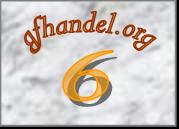 |
|
Vol. 6-7:
Solomon (HWV 67)
Solomon Justino Diaz
Pharaoh’s daughter,
First Harlot,
&
Queen of Sheba Sheila Armstrong
Zadok Robert Tear
Levite Michael Rippon
Second Harlot Felicity Palmer
Amor
Artis Chorale
English
Chamber Orchestra (on modern instruments)
Johannes Somary
2 CDs
Brilliant Classics
[originally released on Vanguard Classics]
Released in 2001 / Recorded in ?
|
Solomon
was composed in 1748 just before Susanna, but was premiered in 1749
after the latter work had already been performed. Each of the three parts
of Solomon presents an independent story belonging to Solomon’s
reign. Though the libretto lacks dramatic intensity the music is sometimes
moving, often brilliant, and consistently inspired. This oratorio appears
as something between a reflection on life and a hymn to monarchy.
As with Somary’s Judas Maccabaeus
and Messiah, his Solomon is not totally uninteresting.
However it definitely suffers from the main part being transposed from
alto to bass – which really changes the colour, the tone, and the mood of
the whole work – and from less attractive soloists.
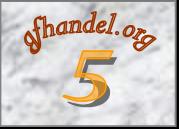 |
|
Vol. 8-10:
Belshazzar (HWV 61) – sung in German.
Belshazzar Peter Schreier
Nitocris Renate
Frank-Reinecke
Cyrus
Ute Trekel-Burckhardt
Daniel
Gisela Pohl
Gobrias
Hermann Christian Polster
Arioch
Joachim Vogt
Messenger Günther Beyer
Berliner
Singakademie
Kammerorchester Berlin (on modern instruments)
Dietrich Knothe
3 CD’s
Brilliant Classics licensed from Edel Classics GmbH
Released in 2001 / Recorded in 1976 [?]
|
First performed in 1745, Belshazzar
is one of the darkest and most theatrical oratorios of Handel. Not only is
this interpretation sung in German, but it irredeemably heavy. This gives
one a good idea of how Handel oratorio ought not to be performed.
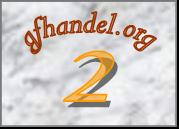 |
|
Vol. 11-12:
Messiah (HWV 56)
Margaret Price (soprano)
Yvonne
Minton (contralto)
Alexander Young (tenor)
Justino
Diaz (bass)
Amor
Artis Chorale
English
Chamber Orchestra (on modern instruments)
Johannes Somary
2 CD’s
Brilliant Classics [originally released on Vanguard Classics]
Released in 2001 / Recorded in ?
[1970]
|
One would expect this to be an old fashioned traditional
Messiah, but it is one of the pleasant surprises of the Masterworks
set. Somary’s conducting, the choir and the orchestra are correct –
articulations are sometimes heavy – and each soloist offers some really
nice moments, particularly Yvonne Minton. The da capo are varied
and trills are not absent. It is slightly monotonous, but the
interpretation is sensitive and with a certain dramatic sense.
 |
|
Vol. 13-15:
Brockes Passion (HWV 48)
Evangelist Martin Klietmann
(tenor)
Jesus István Gáti (baritone)
Tochter
Zion
Mária Zádori (soprano)
Peter Guy de Mey
(tenor)
Judas Drew Minter
(countertenor)
Mary Éva Bártfai-Barta (soprano)
John
Péter Baján (countertenor)
James, Caiphas Tamás Csányi
(countertenor)
Pilate Gunther Burzynski (baritone)
Katalin
Farkas (soprano)
Éva Lax
(contralto)
János
Bándi (tenor)
Stadtsingerchor Halle
Capella
Savaria (on period instruments)
Nicholas McGegan
3 CD’s
Brilliant Classics licensed from Hungaroton
Released in 2001 / Recorded in 1994 [?]
|
Handel’s setting of the passion libretto
by Barthold Heinrich Brockes (a text used by many composers) might have
been composed between 1715 and 1716, and was probably first performed in
Hamburg. The pieces (recitatives, arias, ariosos, choruses with or without
solo parts) are often short, and alternate in an engaging dramatic and
varied way. The melodic inventiveness and the variety of the
accompaniments make it a score of great richness.
Many soloists are almost at their best
and offer moments of true emotion even if not always perfect singing.
Nicholas McGegan seems to be really inspired by this work and the result
is truly coherent, well balanced and more varied than several of his opera
recordings. CD editors often neglect this work, but at least here is a
good version of a marvellous work.
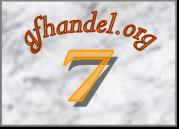 |
|
Vol. 16:
Johannes Passion.
Evangelist Martin Klietmann
(tenor)
Jesus József
Moldvay (bass)
Pilate Charles
Brett (countertenor)
Mária
Zádori, Ibolya Verebics (sopranos)
Judith
Németh (mezzo-soprano)
Gábor
Kállay (tenor)
István
Gáti (baritone)
Stadtsingerchor Halle
Chamber
Choir
Capella
Savaria (on period instruments)
Pál
Németh
1 CD
Brilliant Classics licensed from Hungaroton
Released in 2001 / Recorded in 1994
[Originally released in 1997]
|
Though many people, including Friedrich
Chrysander, thought that this version of the Johannes-Passion was
composed by Handel, it seems most likely that it was not. The soloists who
sing the arias (particularly Maria Zádori, Judith Németh or István Gáti)
are convincing, unlike those interpreting characters who seem less at ease
with declamation. The good performance of the choir and the orchestra
completes an honourable recording.
 |
|
Vol. 17-18:
Acis and Galatea (HWV 49)
Galatea Julianne Baird
Acis
Frederick Urrey
Polyphemus Kevin Deas
Damon David Price
Ama
Deus Ensemble
Valentin Radu
2 CD’s
Brilliant Classics licensed from Vox Classics
Released in 2001 / Recorded in 1995
|
This Masque inspired by Ovid was
composed in or around 1718 while Handel worked for James Brydges, the Earl
of Carnarvon and later first Duke of Chandos. This recording under
Valentin Radu could have been a correct one even if sometimes monotonous.
However, problems of accuracy from the orchestra and some soloists prevent
it from being a safe recommendation. Tenor David Price has many problems
with the part of Damon but the other soloists are convincing. Julianne
Baird already recorded the role of Galatea under Johannes Somary in 1986
on Newport Classics, and, despite some accuracy problems here, is still a
nice nymph. Frederick Urrey offers some nice singing and Kevin Deas is a
strong Polyphemus.
 |
|
Vol. 19-20:
Imeneo (HWV 41)
Imeneo John Ostendorf
Rosmene Julianne Baird
Tirinto D’Anna
Fortunato
Clomiri Beverly Hoch
Argenio Jan Opalach
Brewer
Chamber Chorus
Brewer
Chamber Orchestra (on period instruments)
Rudolph
Palmer
2 CD’s
Brilliant Classics licensed from Vox Classics
Released in 2001 / Recorded in circa 1986
|
Previously reviewed here.
 |
|
Vol. 21-23:
Faramondo (HWV 39)
Faramondo D’Anna Fortunato
Clotilde Julianne
Baird
Gernando Drew Minter
Rosimonda Jennifer Lane
Adolfo Mary Ellen
Callahan
Gustavo Peter Castaldi
Childerico Lorie Gratis
Teobaldo Mark Singer
Brewer
Chamber Orchestra (on period instruments)
Rudolph
Palmer
3 CD’s
Brilliant Classics licensed from Vox Classics
Released in 2001 / Recorded in 1996
|
Previously reviewed here.
 |
|
Vol. 24:
Coronation anthems:
Zadok the Priest (HWV
258)
My
Heart is inditing (HWV
261)
Let thy Hand be strengthened
(HWV 259)
The King shall rejoice (HWV 260)
Organ concerto op. 7 no. 1 (HWV 306)
Rien
Voskuilen (organ)
Holland
Boys Choir
Dutch
Baroque Orchestra (on period instruments)
David
Willcocks
1 CD
Brilliant Classics
Released in 2001 / Recorded in 1996
|
In the 1960s David Willcocks recorded a
beautiful version of these four brilliant anthems composed for the
coronation of George II in 1727. In this recent recording the Holland Boys
Choir is not totally at the same level as the Choir of King’s College
Cambridge, but offers a good performance with the efficient accompaniment
of the Dutch Baroque Orchestra. The organ concerto is a nice additional
programme. This disc is one of the few entirely pleasing surprises in the
box.
 |
|
Vol. 25-26:
Italian cantatas:
Delirio amoroso
a,c
(HWV 99)
Crudel tiranno amor
a,c
(HWV 97)
Agrippina condotta a morire
a,c
(HWV 110)
Notte placida e cheta
a,d
(HWV 142)
Ero e leandro
a,d
(HWV 150)
Il duello amoroso
a,b,d (HWV 82)
a: Mária Zádori (soprano)
b:
Ralph Popken (countertenor)
c:
Concerto Armonico (on period instruments), Péter Szüts, Miklós Spányi
d:
Capella Savaria (on period instruments), Pál
Németh
2 CD’s
Brilliant Classics licensed from Hungaroton (originally released
separately)
Released in 2001 / Recorded in 1995 [?] for HWV 99, 97 & 110, 1988 for HWV
142, 150 & 82.
|
This 2 disc set is a beautiful anthology
of Italian cantatas for soprano and orchestra, and also features an alto
in “Il duello amorosa”. Except for HWV 97, the cantatas were all
composed during Handel Italian period, between 1706 and 1710. They are not
miniature operas as is sometimes claimed, but often a fascinating focus on
a specific character and their tragedy or exploration of a specific
feeling. Even if Maria Zadori’s madness in HWV 99 seem to be too moderate,
she offers musically sensitive and fine dramatic interpretations. Capella
Savaria is a marginally superior to the Concerto Armonico in dramatic
involvement, but both discs contain great music given really good
performances.
 |
|
Vol. 27:
German arias (HWV 202-210)
Arleen
Auger (soprano)
Peter
Mirring (violin)
Werner
Tast (flute)
Burkhardt Glaetzner (oboe)
Matthias Pfaender (cello)
Dieter
Zahn (violone)
Günter
Klier (bassoon)
Walter
Heinz Bernstein (harpsichord)
1 CD
Brilliant Classics licensed from Edel Classics GmbH
Released in 2001 / Recorded in 1980
|
Probably composed during the second half
of the 1720s, these nine German arias use texts from a collection
by Barthold Heinrich Brockes called “Irdisches Vergnügen in Gott”
(i.e. “Terrestrial pleasure in God”). This title is a perfect illustration
of the meaning of the texts – an idealized vision of the world. Arleen
Augér provides sensitive and poetic interpretation far from Dorothea
Röschmann’s darker vision (beautiful but missing the point), and Augér’s
voice fits this programme perfectly. This disc is full of melodic
inventiveness, and some of Handel’s finest dialogue between solo voice and
chamber accompaniment. Here are nine miniature masterworks and fifty-three
minutes of pure bliss.
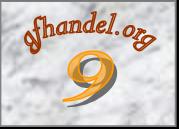 |
|
Vol. 28:
Water Music (HWV 348-350)
Consort
of London (on modern instruments)
Richard
Haydon Clark
1 CD
Brilliant Classics licensed from Collins Classics
Released in 2001 / Recorded in 1989
|
These brilliant orchestral suites were
composed for King George I and first performed in 1717 during a short trip
on the River Thames between London and Chelsea. Richard Haydon Clark
conducts an honourable but slightly moderate version. The are many, many
more contrasted and livelier versions, for example under John Eliot
Gardiner or Jordi Savall (on period instruments) or under Neville Marriner or Raymond Leppard (on modern instruments).
 |
|
Vol. 29:
Music for the Royal Fireworks
a
(HWV 351)
Oboe concerto n° 3a
(HWV 287)
Harp concerto
b
(HWV 294)
Arrival of the Queen of Sheba
c
- from
Solomon (HWV 67)
Concerto grosso op. 6 no. 8
d
(HWV 326) Robin
Miller (oboe)
Maria
Grafova (harp)
a:
Scottish Chamber Orchestra (on modern instruments)
b:
Janacek Philharmony (on modern instruments)
c:
Orchestra of St John’s Smith Square (on modern instruments)
d:
Lodz Chamber Orchestra (on modern instruments)
a:
Alexander Gibson
b:
Hartmut Haenchen
c:
John Lubbock
d:
Zdzislav Szostak
1 CD
Brilliant Classics partly licensed from ASV (a
&c)
Released in 2001 / Recorded in ?
|
The main work on this heterogeneous
programme by various interpreters is the orchestral suite known as the
“Music for the Royal Fireworks” and composed in 1749 for the celebration
of the peace of Aix-la-Chapelle (1748) which put an end to the War of
Austrian succession. This is another acceptable but less than fascinating
version of this brilliant ceremonial piece. The interpretation of the rest
of the programme is divided between prettiness and ennui.
 |
Vol. 30-31:
Concerti grossi op. 3 a
(HWV 312-317)
Concerti a due cori
b (HWV 332-334)
a:
Franz Liszt Chamber Orchestra (on modern instruments)
b:
Neues Bachisches Collegium (on modern instruments)
a: János Rolla
b: Max Pommer
2 CD’s
Brilliant Classics licensed from Hungaroton and Edel Classics GmbH
(originally released separately)
Released in 2001
Recorded in 1984 (a,
Hungaroton) and 1980 (b,
Edel Classics)
|
Here is a recording of some orchestral
works composed by Handel, including Concerti a due cori composed
during the late 1740s, and the Opus 3 Concerti grossi. The latter
collection was probably composed during the 1710s and 1720s, and later
collated by the publisher John Walsh. Both of the recordings are not bad
but definitely sound a little old-fashioned. At least there are moments of
some nice musicality in Opus 3, but the Concerti a due cori are
particularly monotonous.
 |
|
Vol. 32-34:
Organ concertos:
Op. 4 (HWV 289-294),
Op. 7
(HWV 306-311) &
The Cuckoo and the
Nightingale (HWV 295)
Ivan
Sokol (organ)
Slovak
Chamber Orchestra (on modern instruments)
Bohdan
Warchal
3 CD’s
Brilliant Classics
Released in 2001 / Recorded in ?
|
There is no information at all, not even
a booklet, so the original date of first release or recording is unknown.
Even if these performances are not amongst the worst volumes of this boxed
set, they are only worth hearing for the quality and variety inherent in
Handel’s music rather than the monotonous interpretations.
 |
|
Vol. 35-40:
Chamber Music
L’École
d’Orphée presents:
Vol. 35:
Flute sonatas
Stephen
Preston (flute)
Susan
Sheppard (cello)
Lucy
Carolan, John Toll (harpsichord)
Vol. 36:
Violin & Oboe sonatas
John
Holloway (violin)
David
Reichenberg (oboe)
Susan
Sheppard (cello)
Lucy
Carolan (harpsichord)
Vol. 37:
Trio sonatas op. 2
John
Holloway, Micaela Comberti (violin)
Stephen
Preston (flute)
Philip
Pickett (recorder)
Susan
Sheppard (cello)
John
Toll, Robert Woolley (harpsichord)
Vol. 38:
Trio sonatas op. 5
John
Holloway, Micaela Comberti (violin)
Susan
Sheppard (cello)
Lucy
Carolan (harpsichord)
Vol. 39
Trio sonatas
John
Holloway, Micaela Comberti, Alison Bury (violin)
Susan
Sheppard (cello)
Lucy
Carolan, Robert Woolley (harpsichord)
Vol. 40:
Recorder sonatas
Philip
Pickett, Rachel Beckett (recorder)
Susan
Sheppard (cello)
Lucy
Carolan (harpsichord)
6 CD’s
Brilliant Classics licensed from CRD
Released in 2001 / Recorded in 1991 [1984-1985] |
Handel’s sonatas were partially
published during the 1730s - Opus 1 in 1732, Opus 2 in 1733, and Opus 5 in
1739 – but they were composed throughout Handel’s earlier career, and some
may even count as his earliest extant works. Even nowadays some of them
are attributed to Handel without certainty. This is an excellent
anthology, and maybe the best series of Handel’s chamber music available
on disc. It also provides us with an opportunity to listen to sonata
versions of melodies we usually associate with orchestral or vocal music,
all played by the finest interpreters.
Despite some dryness in John Holloway’s playing, the whole
interpretation is particularly stylish and refined. The Opus 5 trio
sonatas are as near to ideal as possible, as indeed are the variety of
feelings expressed in some of the violin or oboe sonatas (vol. 36), or the
irresistible melancholic charm of Opus 2. Of all the content in the
Masterworks boxed set, these six discs by L’École d’Orphée are not to be
missed. However, these six discs have also been reissued as self contained
boxed set by the Regis label. In either reissue, they should form an
essential part of every Handelians collection.
 |
